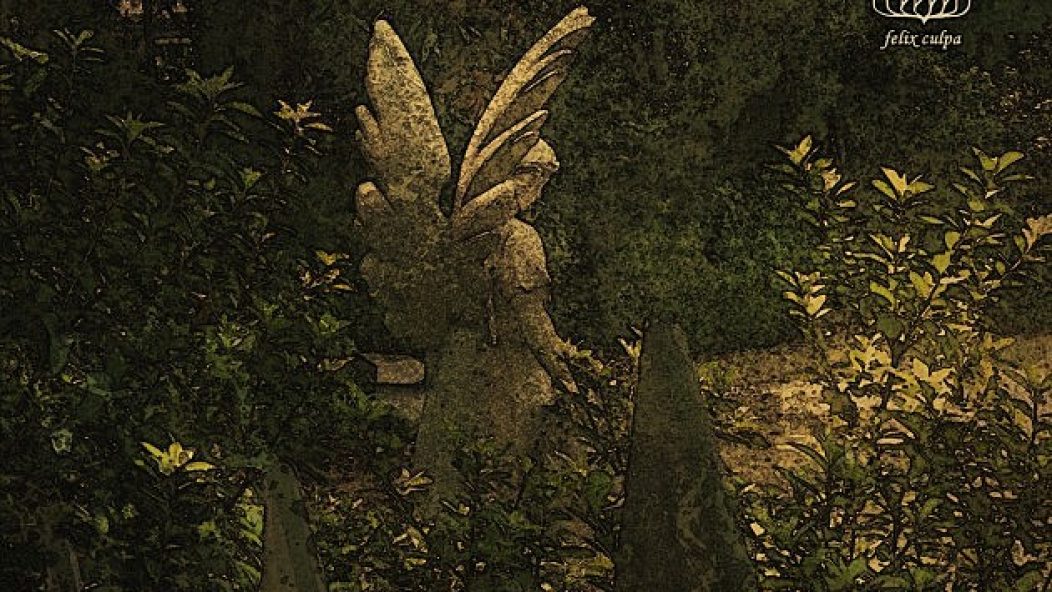
Editor's Choice September 2015
…
In September, I listened to the first taste of the most historically significant and controversial piece of music to be released this year. Not Deafheaven. Not Iron Maiden. I’m talking about Wake Up!, the forthcoming studio album by Pope Francis. One can hear the first track, “Wake Up! Go! Go! Forward!” here, but in advance let me warn you it’s not very good.
If I had to score things Pope Francis has done in the last month on “coolness,” from 1 to 10, with 10 being speaking about climate change and 1 being meeting with Kim Davis, this gets a 5. Yes, it’s significant for a historic figure and world leader to release a commercial record, but like so many things Francis does, it also seems like a desperate attempt to make Catholicism interesting enough to stymie its hemorrhaging membership.
The song itself, however, is surprisingly metal. There’s no blast beats or screaming, but the first segment of the song is a piece of high-velocity Italian progressive rock. Forty years ago (and I doubt the nearly eighty-year-old pontiff has listened to a new record in that time) this would have been considered heavy music. It’s important to remember that while Black Sabbath pioneered metal, they and Deep Purple were playing shows with prog groups during their heydays.
This style of searing guitar and organ-driven music still makes up a large part of metal’s genetic makeup, as evidenced by the sudden surge of interest in Goblin—different versions of the band are releasing records on Relapse and headlining the upcoming Housecore Horror Festival, while reissues of the group’s horror soundtracks on vinyl continue to sell well. Goblin shared soundtrack space with bands like Iron Maiden and Motorhead. Hell, “Kingdom of the Clouds,” the last song on Maiden’s latest record The Book of Souls, makes reference to Steve Hackett’s guitar work in Genesis.
The Catholic Church has a lot of cultural capital in the zeitgeist of metal, albeit most of it negative. The pope himself is usually a villain in metal, as evidenced by Nuclear Assault’s song “Hang the Pope,” and the cover art to Exhorder’s Slaughter in the Vatican. That said, the Vatican’s historic role as European superpower during the Renaissance still provides lyrical and artistic fodder for heavy music; thank the Vatican for the Crusades and the Spanish Inquisition.
As a lapsed Catholic myself, that metal trafficked so heavily in the church’s language and symbology made it easier for me to incorporate metal into my life, as opposed to, say, vocal jazz. In researching this essay, I stumbled upon a big segment of dedicated and apparently very conflicted Catholic metal fans. There’s whole blogs devoted to boosting the signal of devout Catholic metal, not to mention a whole host of Q&A forums on Reddit and other webistes parsing out which bands are or are not appropriate for Catholics to listen to.
More recently, Catholicism, especially the process of Sunday Mass, is being explored and toyed with more in metal music. Abigor, for example, organized their last record in the style of mass. More obviously, Papa Emeritus, the singer of Ghost (who also dabble in Italian prog), is styled after the pontiff. Both Ghost and Abigor are inverting or perverting Catholic imagery. Maybe the ultimate reintegration of Catholicism and metal is Reverorum ib Malacht, the Catholic black metal band who released an album last year on Anja offensive, the label that harbors Deathspell Omega.
Hell, metalheads themselves have tried to appropriate the Pope (or maybe Catholics tried to appropriate Ozzy) when a photo of a young Francis wearing a Black Sabbath tee shirt. It’s fake of course, which is in it’s own way surprising. Sabbath defended the pontiff on “Lord of this World,” but Geezer Butler’s Christianity is a cornerstone of Sabbath’s lyrical bent.
When I look at the fervor with which metalheads debate their favorite records in bars, and the vitriol with which commenters eviscerate writers and one another, I’m reminded of my catechism teachers. The stated beliefs of metalheads themselves are secular and sometimes occult to the point that religious metal fans need to set up their own communities to navigate the subject matter. That said, the manner in which people discuss metal borders on religious. you can take the listener out of the church but you can’t take the church out of the listener. Maybe you can’t take even the music fan out of the pope—if his goal is to make Catholicism more relevant, a record with wailing guitar and Hammond organs aint it. In that sense, Wake Up! seems more like the kind of passion projects that we often highlight here at Invisible Oranges.
Speaking of passion projects…
…
Rhode Island’s blackened hardcore hybrid Sangus excel at ferocity. While many bands of their ilk tend to fall flat with me, the band’s 2014 Saevitia EP thrilled, especially on the song “Live to Kill.” It’s the sort of record one limps away from. Their follow-up EP, Predicabo Mundi, is more of the same. At some point the band is going to need to throw a few curve balls into their sound, but for now these concentrated bursts of vicious music are like shots of good espresso. The band is also selling both EP’s packaged as a single record with a few bonus tracks, and while I bet that CD will be worth some money down the line, I prefer Sangus in four-song bursts, with all vitriol and no complications.
-Discovered via email from the band
…
If, like me, you’re constantly aching for the glory days of pre-keyboard Opeth (Ok, I like keyboard Opeth as well), Dalla Nebbia’s new LP, Felix Culpa should be high on your to-listen list, albeit with more blasts and shrieks. There’s a few more modern moments, such as a few sequenced song intros and interludes, but mostly this project is a love letter to a particular melodic sub-sect of progressive Scandinavian bands that hit their creative peak around the turn of the century. The homage is so complete that Sareeta from Borknagar and Solefald plays violin on much of the album, while Aort of Code contributed some guitar. They don’t make as notable an all-star backup team as the one that powered the last Myrkur record, but Felix Culpa is a much better (and more authentic) progressive black metal record than M.
-Discovered via email from the band
…
Part of the fun in constructing a column like this is reading what smaller bands have to say about themselves. Not everyone has a press agent, and while many PR blurbs are ridiculously entertaining in-and-of themselves, they often come across as insincere. Black metal Pr bursts in particular get histrionic and prone to ten-dollar words in service of perpetuating occult schlock. What’s better is when a band’s silliness is earnest. Enter Never Again, a self-styled “Swedish Death Metal” band from Italy whose command of English seems bare, but whose three-song EP Death Metal Tsunami makes for a pretty good listen. The funny part is, when they say “Swedish Death Metal,” I know exactly what they’re talking about: riffs, aggression, a vicious vocal approach, speed. In this instance, they’re aiming for early At The Gates minus the atmosphere and land pretty well on the mark, the riffs are quick and the snare sounds like a nail gun.
…
As a frequenter of all ages hardcore shows in Ohio, I couldn’t escape hearing about Integrity as a teenager. While I didn’t see that band until Maryland Deathfest 2013, they took on a mythic status in my social circle, especially the Systems Overload iteration of the band. Dead Shall Rise features The Melnick brothers, who anchored the band on that historic record. Rob Orr, who currently plays every instrument in Integrity, drums in this project. In essence, Dead Shall Rise explores the possibility that Dwid Hellion is the weakest member of Integrity, and offers a greatest-hits lineup of the band without him. They pretty much nail the perfect blend of metal and hardcore here, with a balance of melody and tumbling rhythm. Aaron Melnick released another Dwid-less album last year as Shin to Shin, and it would have been a spectacular record were it not for the vocals, a problem that Dead Shall Rise has rectified. There’s only two songs online, and these sorts of projects seldom get past a few demos, but I hope for more from this band.
Discovered via Rust Belt Hammer
…
Around the time I was bumming around basement hardcore shows and leaving early to get enough sleep so that I could stay awake during Chemistry, I remember being a pretty staunch classic metal purist. For a while there, I thought death metal was noise, and I despised pretty much anything contemporary. The first two albums to shake me from that trend were Mastodon’s Leviathan, and Lamb of God’s Ascendancy, but those records didn’t get me going to shows—Mastodon wasn’t playing all ages venues yet, and Lamb of God was touring with bands that were too expensive for me. What got me out of my house was Trivium right after they released Ascendancy. Naive, I know, but at the time I really thought they had it all: Matt Heafy screamed, but his songs were more indebted to Iron Maiden than anything else, and yet people my age at the time were interested in their music. all that came to a screeching halt when Trivium released The Crusade, an album so derivative of Metallica that it deserves a unique separate kind of study. Since then, the band’s been on a steep decline—Shogun was OK, but other than that it’s been one awful record after another, mostly because Heafy’s relied more and more on his clean singing voice, which has been mostly awful. I’m pleased to say that almost a decade later, Silence in the Snow finally delivers on the promise of the band’s early output. Heafy’s vocals still aren’t the best, but they’re finally passable, and his arrangements have jettisoned most of the contemporary elements of his sound. Essentially, Heafy’s writing straightforward metal with a little European cheese, and I’m all about it. Heafy knows it, too—the above video is self-aware and in on the joke. I’m sure this blurb won’t change most people’s minds but seriously, give it a shot. I went in expecting garbage and walked away with a big dumb grin.
-Discovered via Press release
…
This is a punk band covering a pop song, and either of those groups probably has more exposure than all the bands on Invisible Oranges in the past month combined. That said, I find this version of the song addictive enough to include. The Weeknd is the biggest male vocal performer in pop music right now, even though many critics hate him and the misogyny in his lyrics rings a bit extreme even for contemporary RnB. I was a big fan of his first mixtape, House of Balloons, and his first album proper, Kiss Land was my favorite pop album of 2013. His new record, The Beauty and the Madness is not as good, though I’m still listening to it frequently. This song, “The Hills,” is one of the bigger signals from the record, as well as one of the less exciting tracks on the record. Titus Andronicus improve the song greatly with their cover. Like The Weeknd, Titus Andronicus sort-of disappointed me with their new record, even though I was a big fan of their breakout success, The Monitor. Their more guitar-driven and less polished take on “The Hills” brings some of its inherent tragedy and melancholy to the fore.
…
A mea culpa: I haven’t always been kind to Vhol, the Bay Area band composed of drummer Aesop Dekker (Agalloch), singer Mike Scheidt (Yob), bassist Siegrid Shie (Hammers of Misfortune) and guitarist John Cobbett (Hammers of Misfortune). The group’s first album frustrated me, but my consternation with it stems from my own expectations: Cobbett and Dekker were both members of Ludicra, a band I sincerely miss and so I wanted the band to basically continue that project. It does not. That said, I stand by a few of my critiques: VHOL is difficult to listen to and badly needs a remix, even though it’s only two years old. More importantly, it lacks a coherent identity. Those critiques both fall apart ten seconds into “The Desolate Damned,” the first song on Vhol’s upcoming new album, Deeper than Sky. This time around the band both sounds clear and has an identifiable and unique sound: shreddy melodic thrash reminiscent at times of freaky prog and at other times of Swedish hardcore. In foodie terms, it has a bold flavor. I’ve heard all of Deeper than Sky, and it’s a really stunning achievement full of surprises like a nearly quarter hour title track, a bass-and-piano led hardcore barnburner, and a series of increasingly melodic closing tracks. More sonically conservative listeners may not be able to stomach Deeper than Sky, but I admire its bold break from the work of all of its members’ other groups.
-Discovered via NPR
…











